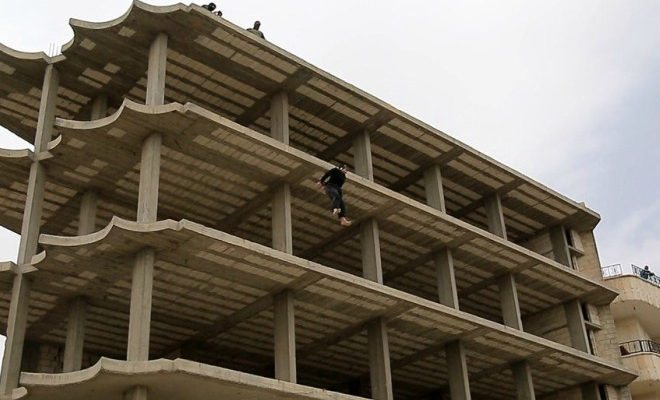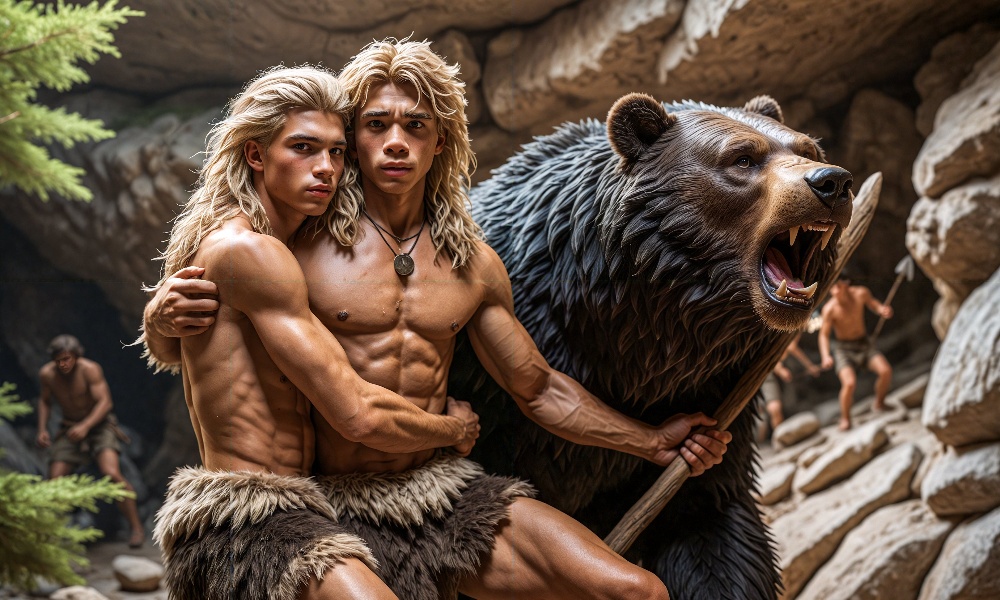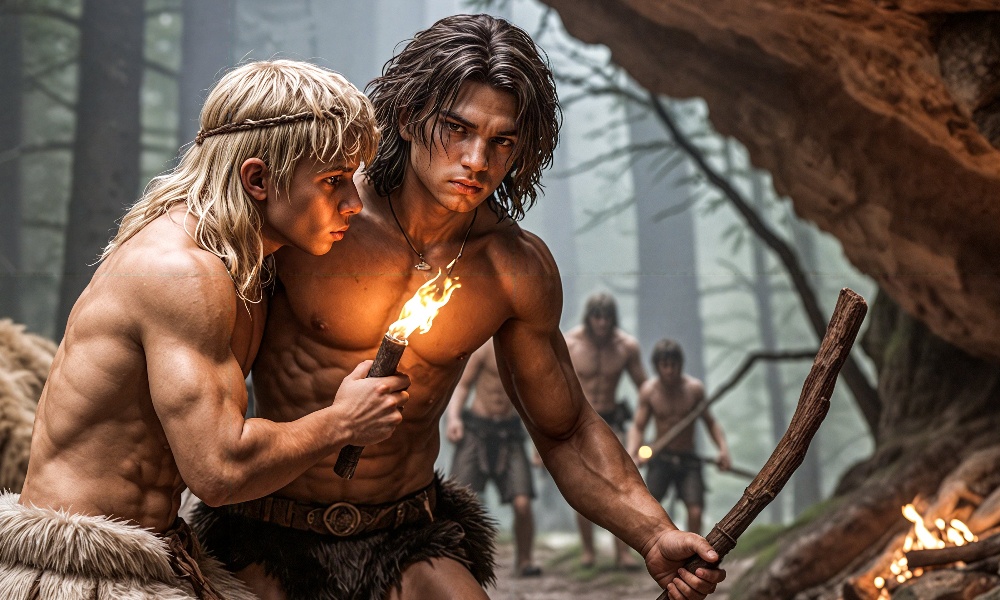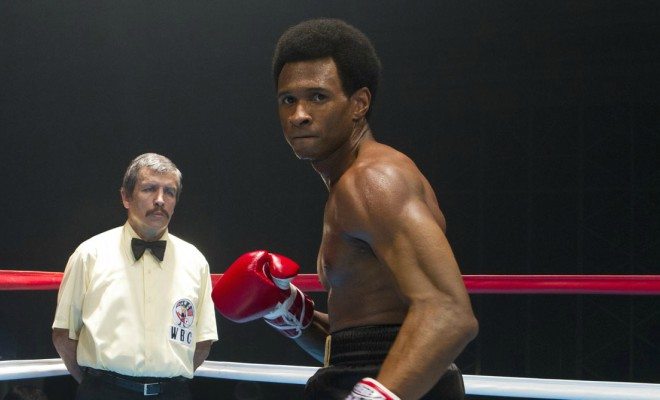In a 2005 study, researchers found that gay and bisexual men can recognize other queer men simply by their armpit odor. (more…)
Author: Gayety Staff
-

Logo’s Gay Bachelor Is an Interior Designer With Big Talent
Today, Logo released the trailer for their upcoming “gay bachelor” reality show entitled Finding Prince Charming. (more…)
-

Man Who Poured Boiling Water on Gay Couple Gets 40 Years in Prison
Earlier this year, we reported on a story of a homophobe, Martin Blackwell, who dumped scalding water on a young gay couple. (more…)
-

ISIS Executes Four Men Suspected of Being Gay
According to Iraqi News, ISIS murdered four men who they presumed were gay, and two of the men were members of ISIS. (more…)
-

Robbie Rogers Reacts to Homophobia on the Field
On Saturday night, after a two-month hiatus, openly gay soccer superstar Robbie Rogers returned to the field with the rest of the Los Angeles Galaxy. (more…)
-

Gymnast Danell Leyva Strips During Bar Routine
Yesterday, Cuban-American gymnast Danell Leyva performed a shirtless bar routine at the Rio Olympics, and the crowd went wild. (more…)
-

Study Shows Homophobes Are Drawn to Gay Imagery
According to a survey published in The Journal of Sexual Medicine, most homophobic young men are subconsciously attracted to gay imagery. (more…)
-

New Evidence Suggests Cavemen Engaged in Same-Sex Relationships
Estimated reading time: 4 minutes
Did Early Humans Engage in Same-Sex Relationships?
According to archaeologists, evidence suggests that humans who lived during the Stone Age may have engaged in same-sex relationships. While it’s difficult to determine the exact nature of these relationships from thousands of years ago, there are compelling indications from ancient art and petroglyphs that same-sex interactions were present and perhaps even accepted.
Gay Cavemen in the Kangjiashimenji Petroglyphs
One of the most fascinating examples comes from the Kangjiashimenji Petroglyphs, a series of rock carvings discovered in northeast China. These carvings, believed to date back to the Neolithic period (around 7,000 to 5,000 BCE), feature over 100 figures involved in various sexual activities. What makes these carvings particularly notable is the depiction of ithyphallic (erect) males engaging in sexual acts with both all genders, suggesting a degree of bisexuality among early humans. These images provide some of the earliest recorded evidence of sexual diversity in ancient human societies, offering insight into the complexities of human sexuality throughout history.
Exploring Sexual Norms in Early Human Societies
While petroglyphs like those at Kangjiashimenji offer a glimpse into sexual behaviors in prehistoric times, it’s important to consider the broader context. Sexuality in early human communities may have been less rigidly defined than in modern times. Survival, kinship, and social bonds likely played significant roles in shaping relationships, with reproductive imperatives coexisting alongside other forms of intimacy and connection. It’s possible that same-sex interactions were part of these social dynamics, serving purposes beyond reproduction, such as strengthening alliances or simply fulfilling personal desires.
Related | Chris Hemsworth-Backed Company Plans to Revive Woolly Mammoth by 2028
Bringing the Past to Life: A Modern Take
Fast forward approximately 3,000 years from the Stone Age to the modern era, and we see how these ancient dynamics continue to inspire creative interpretations. In a hilarious and satirical sketch written and directed by comedian John McKeever, we are transported to a fictionalized past where early humans grapple with the consequences of same-sex interactions.
In the sketch, a group of male cavemen are seen discussing their community’s dwindling population. The apparent alpha male proposes a rather crude hypothesis as to why their numbers are declining: “When men are with men, and women are with women—basically when we do samesies—no people come out. So we can’t do samesies for awhile,” he says, much to the frustration of the group.
As the other cavemen scramble to offer alternative solutions, one younger member of the group suggests they “still do samesies, but we take the people juice, and we throw it on the opposite.” The concept of wasting “people juice” when engaging in same-sex activities is played for laughs, underscoring the comedic tension within the group. The sketch cleverly touches on the timeless debate surrounding reproductive strategies and same-sex intimacy in early human communities.

Homopolitan AI Historical Context of Gay Cavemen
While McKeever’s sketch offers a humorous take on early human sexuality, it reflects a larger conversation about how same-sex relationships may have been viewed in the past. Historical evidence, such as the Kangjiashimenji Petroglyphs, shows that same-sex relationships or behaviors have been part of human culture for millennia. In ancient Greece, for example, same-sex relationships between men were often socially accepted, especially in the context of mentorship and camaraderie. Similarly, various indigenous cultures around the world have historically recognized the existence of more fluid or diverse sexual identities and relationships.
While we may never know for certain how early human societies viewed same-sex relationships, archaeological findings and cultural studies offer tantalizing clues that sexual diversity is as ancient as humanity itself. These insights challenge modern preconceptions about the “naturalness” of certain sexual behaviors and remind us that human sexuality has always been complex and multifaceted.
Watch the hilarious video below to see a modern-day take on ancient love and the eternal debate about how early humans navigated their relationships and reproduction.
More Stories
-

The Try Guys Recreate the Ancient Olympics Naked
BuzzFeed‘s The Try Guys have done some crazy things (like volunteering to undergo prostate exams), but their latest video is extra fabulous. (more…)

